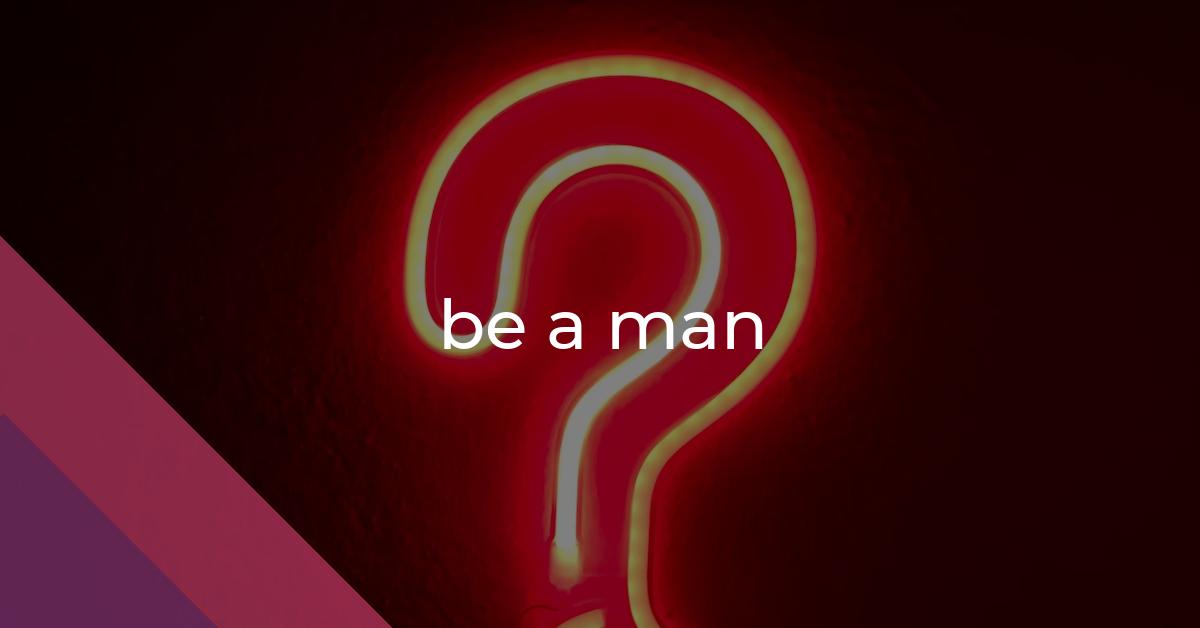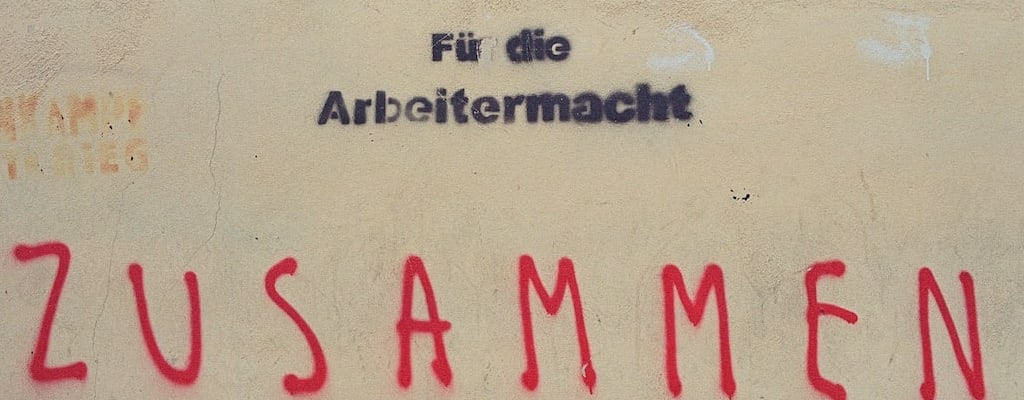be a man: Idiom Meaning and Origin
What does ‘be a man’ mean?
The idiom "be a man" is used to encourage someone to behave in a brave, courageous, or stoic manner, typically associated with traditional male stereotypes. It implies that one should display strength, resilience, and assertiveness in the face of difficult or challenging situations.

Idiom Explorer
The idiom "man up" is used to encourage someone to be brave, tough, or resilient, often in the face of challenges or difficult situations, reflecting stereotypical masculine traits.
The idiom "grow some balls" means to have courage or become more assertive when facing a challenge or making a decision.
The idiom "face facts" means to accept or confront the truth of a situation, even if it is difficult or unpleasant.
The idiom "every man Jack" means every single person, without exception. It emphasizes the inclusiveness and universality of a group or situation.
The idiom "do the talking" means to express oneself or convey a message primarily through actions or behavior instead of words.
The idiom "do it tough" means to face or endure a difficult or challenging situation with determination and resilience.
The idiom "cowboy up" means to toughen up or show courage and determination in the face of a challenge or difficult situation.
The idiom *courage of one's convictions* means to have the bravery and determination to stand up for what one believes is right or true, even in the face of opposition or doubt.
The idiom "come what may" means to face or accept whatever may happen or come, without worrying or fearing the outcome. It implies a determination to confront challenges or difficulties with courage and perseverance.
The idiom "come the old soldier" means to act or speak in a boastful or authoritative manner, often to impress others. It implies that someone is pretending to have more experience or wisdom than they actually possess.
The Essence Unveiled
The idiom "be a man" is often used to encourage someone to act with bravery and confidence in challenging situations. Historically, this phrase has been associated with traditional masculine qualities such as strength and stoicism. However, in modern usage, it has come under criticism for enforcing harmful gender stereotypes and discouraging emotional expression.
The origins of this idiom can be traced back to societal expectations and ingrained gender roles. Throughout history, men have been expected to exhibit qualities such as bravery and toughness. The idiom "be a man" reflects these expectations and encourages individuals, regardless of gender, to embody these traits when faced with difficult circumstances.
In recent years, there has been increasing awareness and critique of the damaging effects of rigid gender norms. The idiom "be a man" has been criticized for dismissing emotions and pressuring individuals, particularly men, to suppress their vulnerability. This can have negative consequences as it reinforces the idea that seeking help or showing emotions is a sign of weakness.
However, it is important to acknowledge that this idiom can also be interpreted in a positive light. It can serve as a call to action, urging individuals to be resilient and proactive in the face of adversity. In this sense, it encourages individuals to face challenges with strength and determination.
The idiom "be a man" exemplifies the complex nature of language and its ability to reflect societal norms and expectations. While it may have originated from traditional gender roles, its meaning and impact have evolved over time. It is essential to consider the broader social and cultural implications when using and interpreting idiomatic expressions like "be a man".
Another related idiom is "man up", which is often used interchangeably with "be a man". This phrase is also associated with the expectation of bravery and toughness. It implies that someone should exhibit traditionally masculine qualities in order to face and overcome challenges. Similarly, the idiom "grow some balls" conveys a similar message, suggesting that someone should become more courageous and assertive.
While these idioms may have their roots in traditional gender roles, it is important to critically examine their usage and impact in contemporary society. They can perpetuate harmful stereotypes and expectations, particularly when used to dismiss emotions or pressure individuals into conforming to rigid gender norms.
However, it is also worth considering the positive aspects of these idioms. They can serve as motivational reminders to overcome obstacles with strength and determination. They can encourage resilience and a proactive approach to facing challenges.
Ultimately, the interpretation and impact of these idioms depend on the context and individuals involved. It is crucial to be mindful of the potential harm they can perpetuate and to foster an inclusive and supportive environment that values emotional expression and challenges rigid gender norms.
As language continues to evolve, so too will the understanding and connotations of idiomatic expressions like "be a man", "man up", and "grow some balls". It is important to engage in ongoing reflection and examination of these idioms and their impact in order to promote a more inclusive and equitable society.
Example usage
1. When faced with a difficult challenge, some people might say, "Be a man and face your fears."
2. If someone is trying to avoid taking responsibility for their actions, they might be told, "Stop making excuses and be a man."
3. If a person is being overly sensitive or emotional about a situation, others might say, "Don't cry, be a man and toughen up."
More "Gender" idioms



